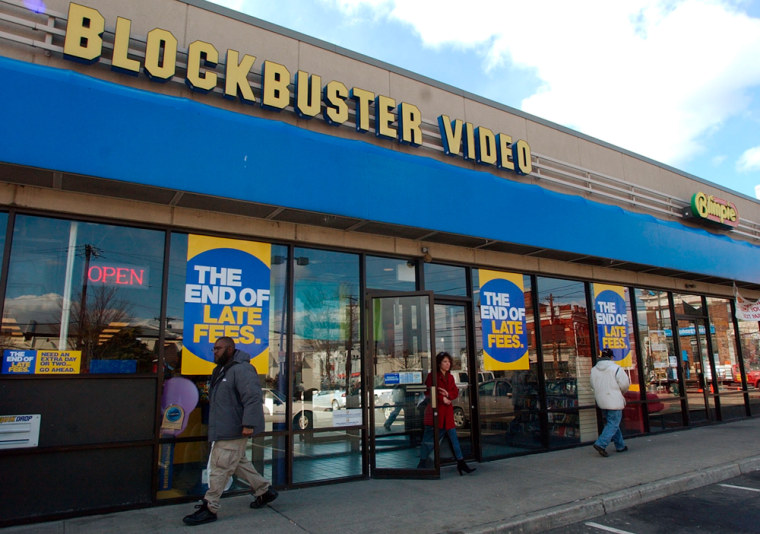New Jersey Attorney General Peter Harvey Friday said he has filed a lawsuit accusing Blockbuster Inc., the nation's top movie renter, of deceiving customers with its new “No More Late Fees” rental policy.
In a statement outlining his complaint, Harvey accused Blockbuster of failing to disclose key terms of the policy and said that some of its stores did not participate in the policy and continued to charge late fees.
“Blockbuster boldly announced its ‘No More Late Fees’ policy, but has not told customers about the big fees they are charged if they keep videos or games for more than a week after they are due,” said Harvey in the statement.
“Blockbuster's ads are fraudulent and deceptive,” he added.
Blockbuster spokeswoman Karen Raskopf said the company was surprised that Harvey's office “never directly contacted us about this” before filing the suit.
She said Blockbuster stood by its new policy and has done everything to explain to customers how it works.
“We are disappointed he took this action because we believe the end of late fees program is a terrific program and we've received tremendous feedback from our customers and employees,” Raskopf said.
Blockbuster — currently locked in a bitter takeover battle for No. 2 U.S. movie renter Hollywood Entertainment Corp. — unveiled its “No More Late Fees” policy in December in an attempt to jump-start its business as competition escalates.
Blockbuster at the time had said that under the new plan customers would have a one-week grace period after a rental due date. If a movie or game were not returned during that week, the customer would be charged for the purchase of the item. If the item was then returned within 30 days, the customer would be able to receive an account credit, but be charged a restocking fee of $1.25.
Harvey said the state is seeking restitution for Blockbuster customers whose overdue rentals were converted to sales, were charged restocking fees and/or charged late fees by a non-participating store.
The state also seeks civil penalties of up to $10,000 for each violation of the Consumer Fraud Act.
Tom Dougherty, managing director and senior strategist at brand development firm Stealing Share, Inc., said the new rental policy and fallout from it could tarnish Blockbuster's brand in the eyes of its customers.
“If I were a brand, I wouldn't want to be known as slick,” said Dougherty. Blockbuster, he said, may have to reverse course and do away with any fees or charges tied to the new rental program, regardless of whatever name the movie renter assigned to them.
“Consumers would want to go elsewhere because no one wants to feel like they are a sucker,” he said. “Blockbuster now looks like a greedy business. And, it looks like a business that assumes that their customers are stupid and naive,” he added.
Blockbuster has been facing increasing competition from discount retailer Wal-Mart Stores Inc and online companies like Netflix Inc. Blockbuster in October had cut its fee for online DVD rentals, in response to a similar move by Netflix.
